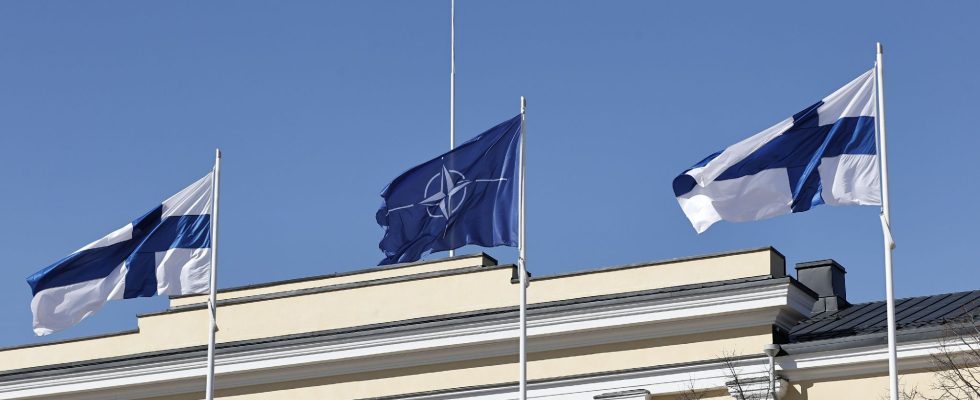“Of course it’s a great day for Finland. It’s also a good thing for NATO.” These are the words of the Finnish Defense Minister, Antti Kaikkonen, after the integration of the Nordic country into the political-military alliance, this Tuesday, April 4. Finland, which shares a 1,300 kilometer long border with Russia, thus becomes the 31st member of the Alliance, on the anniversary of its creation, April 4, 1949.
The news was quick to react to Moscow, believing that it was above all a “further aggravation of the situation”, according to the spokesman for the Russian presidency, Dmitr Peskov. “The enlargement of NATO is an attack on our security and our national interests”, he declared to the press, adding without further detail that Russia was forced to “take countermeasures” . L’Express takes stock of this membership.
Why is Finland joining NATO?
“This membership is the expression of real concern about Russia’s imperial ambitions,” said General Jérôme Pellistrandi, editor-in-chief of the Revue, to L’Express. National Defense. Understanding the situation means going back to the Cold War. At the time, while other northern European countries, such as Norway, Iceland or Denmark, joined NATO when it was created, Sweden and Finland, countries bordering Russia, adopted a policy of neutrality and non-alignment, called “Finlandization”. Insofar as Russia had neither invaded nor satellited Finland, the country had indeed committed itself to an absence of conflictuality.
With the fall of the USSR, Finland gradually became independent, joining the European Union in 1995. The good economic relations between Finland and Russia and the absence of harmful political designs from the second to the first however, do not push Finland to join NATO.
But the war in Ukraine changed the situation. The very aggressive policy of Vladimir Putin, while Finland has a common border of 1,300 kilometers with Russia, worries. In March 2022, a survey by the Taloustutkimus Institute showed that 62% of Finns wanted to join NATO. Before the start of the Ukrainian conflict, only 25% of the inhabitants were in favor of it. “The country wants to benefit from article 5 of the treaty, which provides that an attack against one of the signatories is an attack against all”, explains Jérôme Pellistrandi.
What impact on the medium term?
For General Jérôme Pellistrandi, Finland’s membership of NATO will not change “much”. “On the military level, the country has a defensive tradition, that is to say that it does not want the installation of NATO forces on its territory to wage war against Russia, but only a guarantee extra security”. Located in the north of Russia, “where the winter is very cold”, Finland would not be a territory that Russian forces would take the risk of attacking either, according to the specialist.
A week ago, before the validation of this membership, a Russian ambassador had however alerted: “If it still seems to someone that this will in one way or another improve the security of Europe, be confident that the new members of the hostile bloc will become a legitimate target for Russian retaliatory measures, including those of a military nature.”
What about Sweden?
Launched in the summer of 2022 at the same time as Finland, Sweden’s NATO membership process is still at an impasse. In question: the blocking of Recep Tayyip Erdogan, who wants Sweden to deliver opponents who have found refuge in Stockholm. Some are members of the PKK, an organization qualified as terrorist by Turkey and the European Union. Others are simple militants of the Kurdish cause, or are accused, without proof, by Ankara of having supported the failed coup of 2016.
“Ankara wants things that we cannot and do not want to give it,” Swedish Prime Minister Ulf Kristersson admitted in early January 2022. “I am absolutely confident that Sweden will also become a member. That is, for NATO, for me, a priority to ensure that this will happen as quickly as possible”, reassured the secretary general of the Alliance, Jens Stoltenberg, the old member of Finland.
